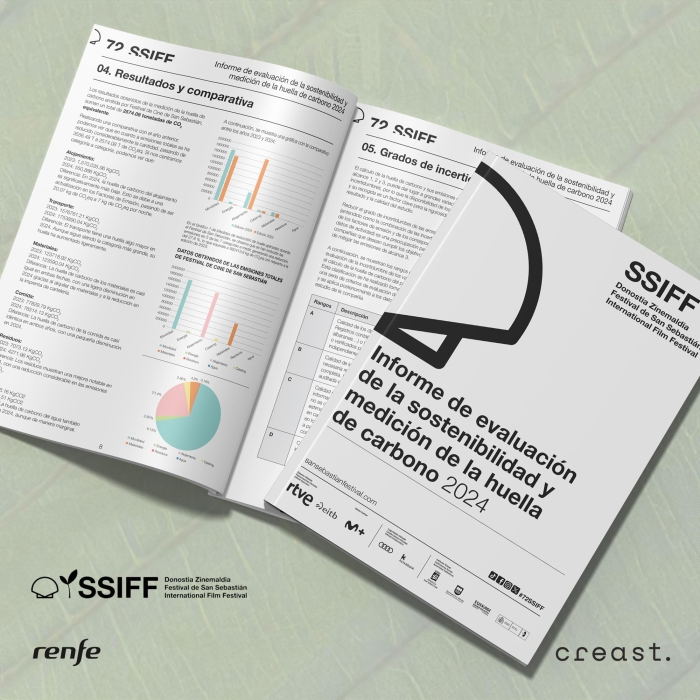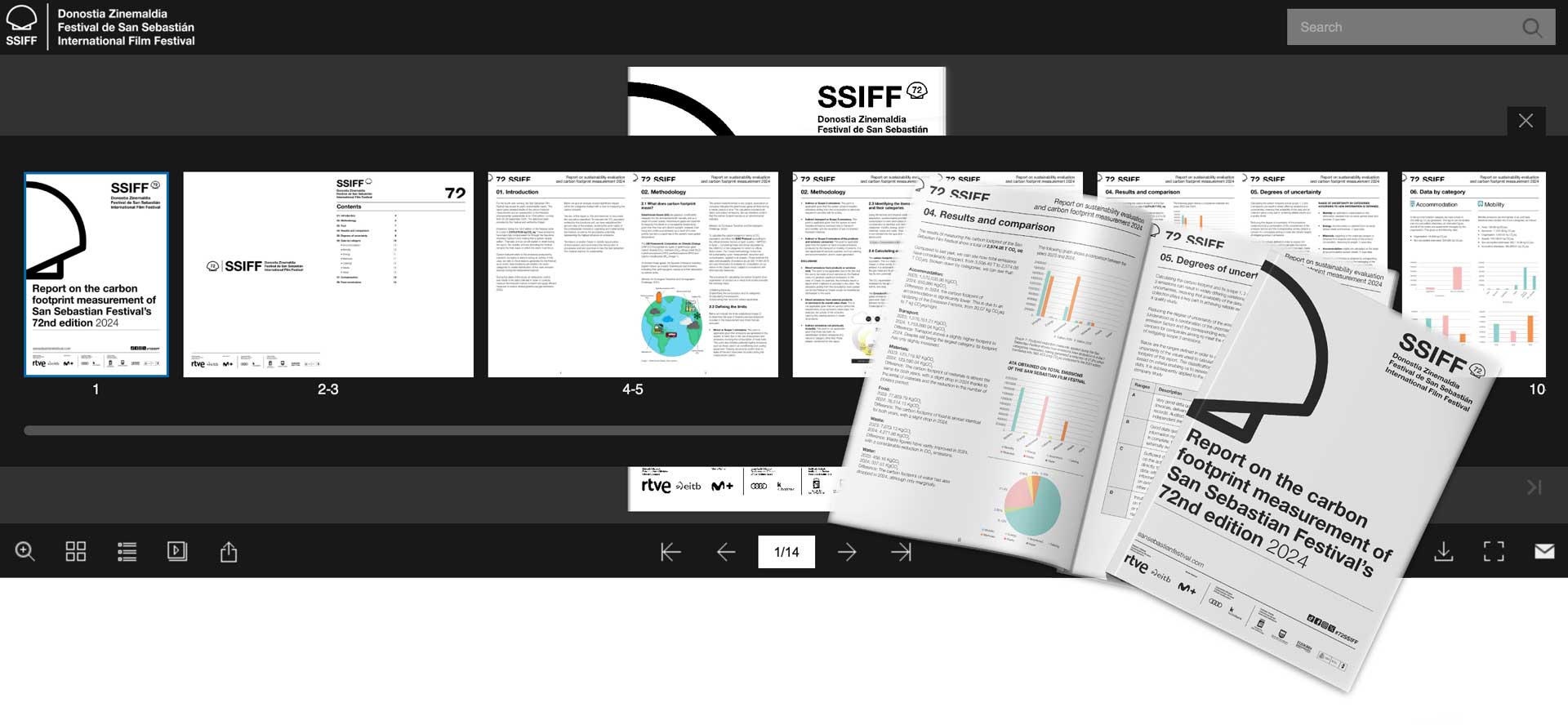The San Sebastian Festival has prepared its fourth annual sustainability report, which details the results of the measurement of the carbon footprint and the evaluation of the environmental sustainability of the 72nd edition of the festival, held between 20 and 28 September 2024. The festival emitted a total of 2,574,079.65 kg of CO2 equivalent, an emission that has been fully offset through the Gipuzkoa Voluntary Carbon Fund, managed by Naturklima; that is, for the first time since the preparation of this report in 2021, the festival has been carbon neutral.

Amaia Serrulla, Head of Sustainability at the San Sebastian Festival, has received the recognition of the Naturklima Voluntary Carbon Fund, during the event organised by the Sustainability Department of the Gipuzkoa Provincial Council.
The data provided by the festival and verified by the environmental consultancy Creast demonstrate that emissions have been reduced by 27.6% in general terms compared to the previous year and that the main problem of the festival in environmental terms is centred on mobility. This category involves an analysis of the movements of the public, film delegations, press and accredited industry, organisation, sponsors and suppliers, which add up to 1,753,890.04 kg of C02e, which represents 68% of the total carbon footprint of the festival.
Calculating the carbon footprint is the first step in raising awareness of the need to reduce and offset greenhouse gas emissions generated by the professional activity of any company or corporation. This data has helped the festival to establish a roadmap through which different measures and changes in work processes have been applied that have allowed it to reduce its footprint. These include the recycled and recyclable red carpet; the reduction of single-use paper; prioritising the train over other means of transport in the organisation’s trips; the combination of hybrid, electric and combustion engine cars in the official vehicle fleet, for which renewable chargers are used; and the early shutting down of the Kursaal, keeping it lit up only during the hours when this is necessary.







